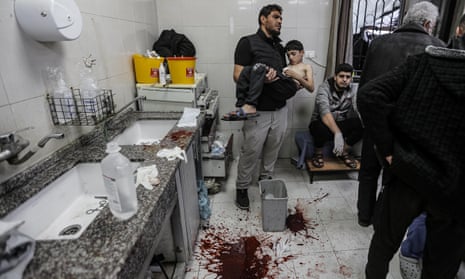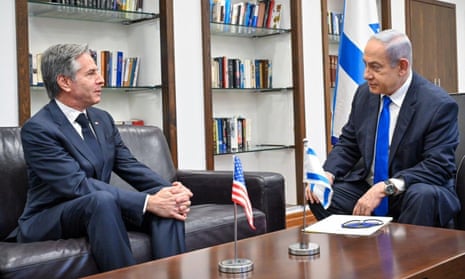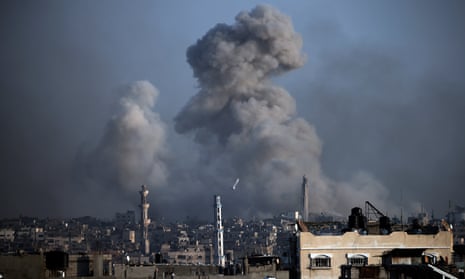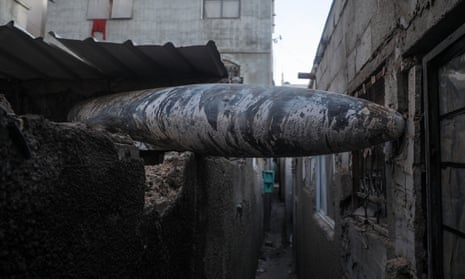Pakistan has launched retaliatory strikes against militants in Iran, in an apparent response to attacks by Tehran two days ago targeting sites within Pakistan’s borders belonging to a Sunni separatist militant group.
Pakistan had already condemned Tuesday’s attacks, which killed and injured at least six people, as “illegal” and had warned Tehran of “serious consequences”. Pakistan also downgraded its diplomatic relations with Iran, recalling its ambassador from Tehran and expelled the Iranian envoy in Islamabad
A statement by Pakistan’s foreign office early Thursday confirmed that Pakistan had undertaken “a series of highly coordinated and specifically targeted precision military strikes against terrorist hideouts in Siestan-o-Baluchistan province of Iran. A number of terrorists were killed during the Intelligence-based operation – codenamed ‘Marg Bar Sarmachar’.”
The missile and drone strikes by Iran were in response to a suicide bombing carried out by Isis-K, the Afghan branch of Islamic State, which killed 85 Iranians in the south-eastern city of Kerman on 3 January. Iran had also carried out strikes against Syria, Iraq and Kurdistan.
Iran has long accused Pakistan of allowing separatist terrorists to hide out in the border region of Balochistan, which was targeted in the strikes.
Pakistan’s decision to respond with retaliatory strikes raises concern of further escalation of the tensions and violence that have been spreading across the Middle East and Asia since the 7 October attacks by Hamas and Israel’s bombardment of Gaza.
The Palestinian news agency Wafa reports that the death toll from an Israeli airstrike on Rafah has risen to 19. It describes the victims as “mostly children and women”.
In Ramallah, in the occupied West Bank, Wafa reports that two Palestinians have been injured by live fire from Israeli forces, which it says “searched and inspected a Red Crescent vehicle during the raid”.
Associated Press reports that the Baloch Liberation Army, a separatist group, said in a statement the strikes by Pakistan inside Iran targeted and killed its people.
“Pakistan will have to pay a price for it,” the group warned. “Now the Baloch Liberation Army will not remain silent. We will avenge it and we announce war on the state of Pakistan.”
A deputy governor of Iran’s Sistan-Baluchistan province, Ali Reza Marhamati, said the dead included three women and four children, and were not Iranian citizens.
Several insurgent groups operate in Iran and Pakistan. They all have a common goal of an independent Balochistan for ethnic Baloch areas in Afghanistan, Iran and Pakistan.
Iran and Pakistan share a 900km (560 mile) border.
Israeli media is reporting that France’s ambassador to Israel, Frédéric Journès, has been speaking on the radio in Israel, and has said he has hopes that the deal to allow medicine into the Gaza Strip, some of it for hostages being held by Hamas, might lead to a renewal of hostage releases.
He told Kan radio:
In a process like this there is a first humanitarian step, and then it can advance us toward a deal. This is also the first sign since the end of the earlier deal that something is possible in the issue of the hostages.
About 132 hostages are still believed to be in Gaza of the estimated 240 seized on 7 October. About 27 of those being held are believed to have been killed.
Hani Mahmoud, reporting from Rafah for Al Jazeera, has described “another night of death and destruction”. He writes for the news network:
Rafah is becoming increasingly dangerous. We’re looking at overcrowded evacuation centres and overcrowded homes. People are everywhere – on the sidewalks and in tents – trying to get away from the horror of the bombs and missiles. Because Rafah is so overcrowded, a single missile can kill a large number of people. This is why we are seeing so many casualties from every airstrike. Most of the victims are women and children.
Reuters has a quick snap that Iran has summoned Pakistan’s charge d’affaires in Tehran. Pakistan withdrew its ambassador from Iran yesterday.
In its latest operational update, issued vis the Telegram messaging app, Israel’s military has claimed “over the past day approximately 60 terrorists were killed” by its “operations in the Gaza Strip against terrorist operatives and infrastructure”.
It specifically claims to have killed “approximately 40 terrorists” in Khan Younis, where, it says, “grenades, AK-47 rifles, military equipment, and technological assets were located”.
The claims have not been independently verified.
Fears are growing that Nasser hospital in Khan Younis, the largest hospital still partly functioning in Gaza, may be forced to close due to Israeli attacks.
Palestinian health officials have said seven people were killed by Israeli airstrikes on homes near the hospital overnight to Wednesday.
The aid agency Médecins Sans Frontières (MSF) said Israeli forces had “heavily bombed the area close to the hospital with no prior evacuation order, causing patients and many of the thousands of displaced civilians, who had sought refuge in Nasser, to flee in a panic”.
The UN agency OCHA said that Israeli forces withdrew from the area at around 7am on Wednesday and that initial reports and video footage showed that the nearby Al Namsawi cemetery had been destroyed and some graves empty, with bodies reportedly missing.

In a statement the Israeli army claimed that it had come under fire from the area, according to AFP.
The MSF’s head of mission for Palestine, Léo Cans, said during a visit to the hospital on Tuesday:
The fighting is very close. We hear bombings around and a lot of shooting. Yesterday [Monday], there was an airstrike 150 metres from the entrance of the hospital that killed eight people and injured more than 80 people. Among those were two boys, four years old and five years old who got killed.
He said the hospital was operating at 300% capacity, adding: “the situation is catastrophic. There are way too many patients for the staff to handle.”
US secretary of state Antony Blinken told Israeli prime minister Benjamin Netanyahu that there is no military solution to Hamas and that the Israeli leader needs to recognize that or history will repeat itself during his last trip to the Middle East, the US broadcaster NBC has reported citing anonymous US officials.
Netanyahu was reportedly unmoved. He also rejected an offer by Saudi Arabia to normalise relations as part of a Gaza reconstruction agreement if Israel agrees to provide Palestinians with a pathway to statehood, the officials said.
The Biden administration is reportedly increasingly frustrated with the Israeli prime minister and is laying the groundwork for a post-Netanyahu government with other Israeli and civil society leaders.
As part of that strategy and in an attempt to work around Netanyahu, Blinken met individually with members of his war cabinet and other Israeli leaders, including opposition leader and former prime minister Yair Lapid, the officials told NBC.
The broadcaster wrote further:
The United States is now following up with Arab leaders on Blinken’s discussions, but the senior administration officials acknowledged that Biden’s lofty hopes of reshaping the Middle East are now inextricably linked to the establishment of a Palestinian state.
As a result, one senior administration official conceded, the president’s aspirations for a durable regional peace may have to await a post-Netanyahu government.

While Iran has taken low-level action against Balochistan in the past, Tuesday’s strikes were unusually heavy-handed and Thursday’s retaliatory bombings were the first time that Pakistan has responded with comprehensive military action against its neighbour.
Sources in Islamabad said the decision was taken after heavy political and military pressure on the top army leadership to show strength against Tehran.
The military’s decision to respond to Iran with retaliatory strikes raises concern of further escalation in the tensions that have been spreading across the Middle East and beyond since the 7 October attacks by Hamas and Israel’s subsequent bombardment of Gaza.
In Gaza, where a communications blackout has entered a seventh day, Al Jazeera is reporting that 16 people including small children have been killed in Israeli shelling in Rafah.
The broadcaster said it had verified footage showing the bodies of three children killed in the shelling of a house east of Rafah arriving at Abu Youssef Al Najjar hospital.
Here are some of the latest images sent to us by wires in Gaza, where there has been no let-up in Israeli attacks.





A deadly Israeli raid on the West Bank city of Tulkarem has continued into a second day, Al Jazeera is reporting, with the UN saying at least seven people – including two children – have been killed.
The broadcaster said residents of the occupied city were still reporting the sounds of explosions and gunfire early on Thursday, and that the Israeli army had blocked off all entrances to the refugee camp and positioned snipers on rooftops.
Raids were also carried out on other areas of the West Bank, including the cities of Hebron and Ramallah overnight and five Palestinian militants were killed in an Israeli strike near Balata refugee camp on Wednesday, the UN and the Al-Aqsa Martyrs’ Brigades, the armed wing of Palestinian president Mahmud Abbas’s Fatah party, said.

Forty-six people were arrested from one family alone in Tkoo’ village in Bethlehem, Al Jazeera reported, while arrests were also made in the towns of Balaa, Beit Rima, Kafr ad-Dik, and al-Jalama.
In its daily update on hostilities the UN’s humanitarian agency OCHA on Wednesday said two paramedics had also been injured and another two detained in the Israeli raid on Tulkarem. It reported:
In the early morning, Israeli forces raided the camp, where clashes erupted between Israeli forces and Palestinians, including an exchange of gunfire and the use of explosive devices by the latter was reported.
Subsequently, an Israeli airstrike targeted a group of Palestinians, killing four, including two children.
During the operation, seven Palestinians, including two PCRS paramedics, and one Israeli soldier had been injured.
An ambulance was severely damaged by shrapnel and two Palestine Red Crescent Society (PRCS) paramedics were detained by Israeli forces.
The Israeli military confirmed it carried out an air strike during the Tulkarem raid, adding that “a number of terrorists were killed in the strike”.
As of Wednesday, Israeli forces and settlers had killed 355 Palestinians including 90 children since Hamas’ 7 October attack on Israel, according to OCHA.
If you’re looking for a bit of background to the strikes launched on Iranian territory by Pakistan, it’s worth looking back to some of our earlier coverage, including this piece by our diplomatic correspondent Patrick Wintour. He covered Tuesday’s attack by Iran on what it said was a militant group in Pakistan. Here’s a snippet:
Iran said its attack mounted on Tuesday using “precision missile and drone strikes”, destroyed two strongholds of the Sunni militant group Jaish al-Adl in the Koh-e-Sabz area of Pakistan’s south-west Balochistan province.
The missile strikes were part of Iran’s sweeping reprisals across Syria, Iraqi Kurdistan and Pakistan, designed to exact revenge for a suicide bombing mounted by Isis-K, the Afghan branch of Islamic State, that killed 85 Iranians in the south-eastern city of Kerman on 3 January.
Tuesday’s strike into Pakistan was the first time Iran had struck so severely inside the nation’s sovereign territory. Ironically, the strike came as Pakistan and Iran’s naval forces were in the midst of a joint exercise designed to underscore the close security cooperation between the two countries.
Pakistan recalled its ambassador from Iran on Wednesday, with the foreign ministry describing the airstrike as an “unprovoked violation of its airspace by Iran … inside Pakistani territory”.
“It is even more concerning that this illegal act has taken place despite the existence of several channels of communication between Pakistan and Iran,” the ministry said.
The Iranian charge d’affairs was summoned to give an explanation.
The US military has fired another wave of missile strikes against Houthi-controlled sites, marking the fourth time in a week that it has directly targeted the group in Yemen.
The strikes were launched from the Red Sea, hitting more than a dozen sites – the officials told the AP news agency – and came after a drone launched from areas controlled by the Houthis hit a US-owned vessel in the Gulf of Aden.
The Houthi-controlled Saba news agency said that the areas targeted were Hodeidah, Taiz, Dhamar, al Bayda and Saada. The media group claimed that UK aircraft were also involved in the strikes but the Guardian was not able to verify those claims.
The US military said that its forces conducted strikes on 14 Houthi missiles that were loaded to be fired from Yemen, and that they presented an imminent threat to merchant vessels and US Navy ships in the region.
Since November, attacks by the Iran-backed Houthi militia on ships in the region have slowed trade between Asia and Europe and alarmed major powers. The Houthis, who control most of Yemen, say they are acting in solidarity with Palestinians in Gaza.
Wednesday’s attack on Red Sea shipping saw a drone launched by the Houthis smash into the Genco Picardy bulk carrier, causing a fire that was soon extinguished, according to the United Kingdom Maritime Trade Operations organisation. The vessel and its crew were said to be safe and proceeding to their next port of call.
More from the Pakistani foreign ministry statement, which justifies this morning’s strikes on Iranian territory by saying that they were taken “in light of credible intelligence of impending large-scale terrorist activities.” The statement says:
Over the last several years, in our engagements with Iran, Pakistan has consistently shared its serious concerns about the safe havens and sanctuaries enjoyed by Pakistani origin terrorists calling themselves “Sarmachars” on the ungoverned spaces inside Iran.
Pakistan also shared multiple dossiers with concrete evidence of the presence and activities of these terrorists.
However, because of lack of action on our serious concerns, these so-called Sarmachars continued to spill the blood of innocent Pakistanis with impunity.
It continued:
Pakistan fully respects the sovereignty and territorial integrity of the Islamic Republic of Iran. The sole objective of today’s act was in pursuit of Pakistan’s own security and national interest which is paramount and cannot be compromised.
At least three women and four children have been killed in Pakistan’s retaliatory strikes on militants in Iran, Reuters has reported.
Several missiles hit a border village in Iran’s Sistan-Baluchistan province, a local security official told Iranian state media, the news wire reported.
The official added that none of the women and children were Iranian nationals.
Iran’s official Irna news agency meanwhile reported that “several explosions have been heard in several areas around the city of Saravan”, quoting a provincial official.
Pakistan has launched retaliatory strikes against militants in Iran, in an apparent response to attacks by Tehran two days ago targeting sites within Pakistan’s borders belonging to a Sunni separatist militant group.
Pakistan had already condemned Tuesday’s attacks, which killed and injured at least six people, as “illegal” and had warned Tehran of “serious consequences”. Pakistan also downgraded its diplomatic relations with Iran, recalling its ambassador from Tehran and expelled the Iranian envoy in Islamabad
A statement by Pakistan’s foreign office early Thursday confirmed that Pakistan had undertaken “a series of highly coordinated and specifically targeted precision military strikes against terrorist hideouts in Siestan-o-Baluchistan province of Iran. A number of terrorists were killed during the Intelligence-based operation – codenamed ‘Marg Bar Sarmachar’.”
The missile and drone strikes by Iran were in response to a suicide bombing carried out by Isis-K, the Afghan branch of Islamic State, which killed 85 Iranians in the south-eastern city of Kerman on 3 January. Iran had also carried out strikes against Syria, Iraq and Kurdistan.
Iran has long accused Pakistan of allowing separatist terrorists to hide out in the border region of Balochistan, which was targeted in the strikes.
Pakistan’s decision to respond with retaliatory strikes raises concern of further escalation of the tensions and violence that have been spreading across the Middle East and Asia since the 7 October attacks by Hamas and Israel’s bombardment of Gaza.
Hello and welcome to the Guardian’s live coverage of the Middle East crisis with me, Helen Livingstone.
Pakistan has carried out a retaliatory strike on militants in Iran, the foreign ministry in Islamabad has said, two days after two children were killed in an Iranian strike on what Tehran claimed were bases belonging to a Sunni militant group, Jaish al-Adl.
At least three women and four children were killed when several missiles hit a border village in Iran’s Sistan-Baluchistan province, a security official from the province said on Thursday according to the semi-official Young Journalist Club news agency.
Reports of the attack came hours after the US military said it had launched a fourth round of strikes on Houthi targets in Yemen, after a drone launched by the rebel group hit a US-owned cargo ship in the Red Sea.
The US conducted strikes on 14 Houthi missiles that were loaded and ready to be fired from Yemen, US Central Command said, adding that they presented an imminent threat to merchant vessels and US Navy ships in the region.
More on that soon. In other key developments:
At least 24,448 Palestinians have been killed and 61,504 wounded in Israeli strikes on Gaza since the war began on 7 October, according to the latest figures by the territory’s health ministry on Wednesday. Another 355 Palestinians, including 90 children, have been killed by Israeli forces and settlers in the occupied West Bank.
Eleven people including two children were killed by Israeli forces in the occupied West Bank on Wednesday, Palestinian officials and the UN said. The UN agency OCHA said six people were killed, including two children, in an airstrike on Tulkarem refugee camp. A separate Israeli airstrike near Balata refugee camp, east of the city of Nablus, killed five fighters with the Al-Aqsa Martyrs’ Brigades, the armed wing of Palestinian president Mahmud Abbas’s Fatah party, it said.
There were fears that Nasser hospital in Khan Younis, the largest hospital still partially functioning in Gaza, may be forced to close due to Israeli attacks. The aid agency Medecins Sans Frontiers (MSF) said overnight to Wednesday Israeli forces had “heavily bombed the area close to the hospital with no prior evacuation order, causing patients and many of the thousands of displaced civilians, who had sought refuge in Nasser, to flee in a panic.”

A shipment of medicine for Israeli hostages and Palestinian civilians entered Gaza on Wednesday, a Qatari foreign ministry spokesperson has confirmed, under a deal mediated by Qatar and France. The agreement marks the first significant progress in indirect talks between Israel and Hamas since December, when a short-lived ceasefire collapsed.
The likelihood of a war in Lebanon is “higher than before”, the head of the Israel Defense Forces (IDF) has said. Speaking to troops in northern Israel on Wednesday, IDF chief of staff Lt Gen Herzi Halevi said Israel’s military is “increasing readiness for fighting in Lebanon”.
A telecommunications blackout in the Gaza Strip entered its sixth day on Wednesday, the longest continuous outage since the war began, according to the internet monitoring group NetBlocks. Internet and telephone services collapsed across Gaza on Friday, marking the ninth blackout the territory has endured since 7 October.
Doctors have been instructed by Israel’s health ministry not to speak with UN representatives investigating the Hamas attacks on 7 October. Members of the UN independent international commission of inquiry, in areas including East Jerusalem and Israel, had been contacting senior physicians and hospital staff who treated the 7 October victims, requesting information and interviews for its investigation into potential war crimes committed since 7 October.
The Jordanian army has said its military field hospital in the city of Khan Younis in Gaza was badly damaged as a result of Israeli shelling in the vicinity. In a statement on Wednesday, the army said it held Israel responsible for a “flagrant breach of international law”.
https://news.google.com/rss/articles/CBMimwFodHRwczovL3d3dy50aGVndWFyZGlhbi5jb20vd29ybGQvbGl2ZS8yMDI0L2phbi8xOC9taWRkbGUtZWFzdC1jcmlzaXMtbGl2ZS11cGRhdGVzLWxhdGVzdC1uZXdzLXVzLW1pbGl0YXJ5LXN0cmlrZXMtaG91dGhpLXJlYmVscy15ZW1lbi1wYWtpc3Rhbi1hdHRhY2staXJhbtIBmwFodHRwczovL2FtcC50aGVndWFyZGlhbi5jb20vd29ybGQvbGl2ZS8yMDI0L2phbi8xOC9taWRkbGUtZWFzdC1jcmlzaXMtbGl2ZS11cGRhdGVzLWxhdGVzdC1uZXdzLXVzLW1pbGl0YXJ5LXN0cmlrZXMtaG91dGhpLXJlYmVscy15ZW1lbi1wYWtpc3Rhbi1hdHRhY2staXJhbg?oc=5
2024-01-18 05:06:58Z
CBMimwFodHRwczovL3d3dy50aGVndWFyZGlhbi5jb20vd29ybGQvbGl2ZS8yMDI0L2phbi8xOC9taWRkbGUtZWFzdC1jcmlzaXMtbGl2ZS11cGRhdGVzLWxhdGVzdC1uZXdzLXVzLW1pbGl0YXJ5LXN0cmlrZXMtaG91dGhpLXJlYmVscy15ZW1lbi1wYWtpc3Rhbi1hdHRhY2staXJhbtIBmwFodHRwczovL2FtcC50aGVndWFyZGlhbi5jb20vd29ybGQvbGl2ZS8yMDI0L2phbi8xOC9taWRkbGUtZWFzdC1jcmlzaXMtbGl2ZS11cGRhdGVzLWxhdGVzdC1uZXdzLXVzLW1pbGl0YXJ5LXN0cmlrZXMtaG91dGhpLXJlYmVscy15ZW1lbi1wYWtpc3Rhbi1hdHRhY2staXJhbg
Tidak ada komentar:
Posting Komentar